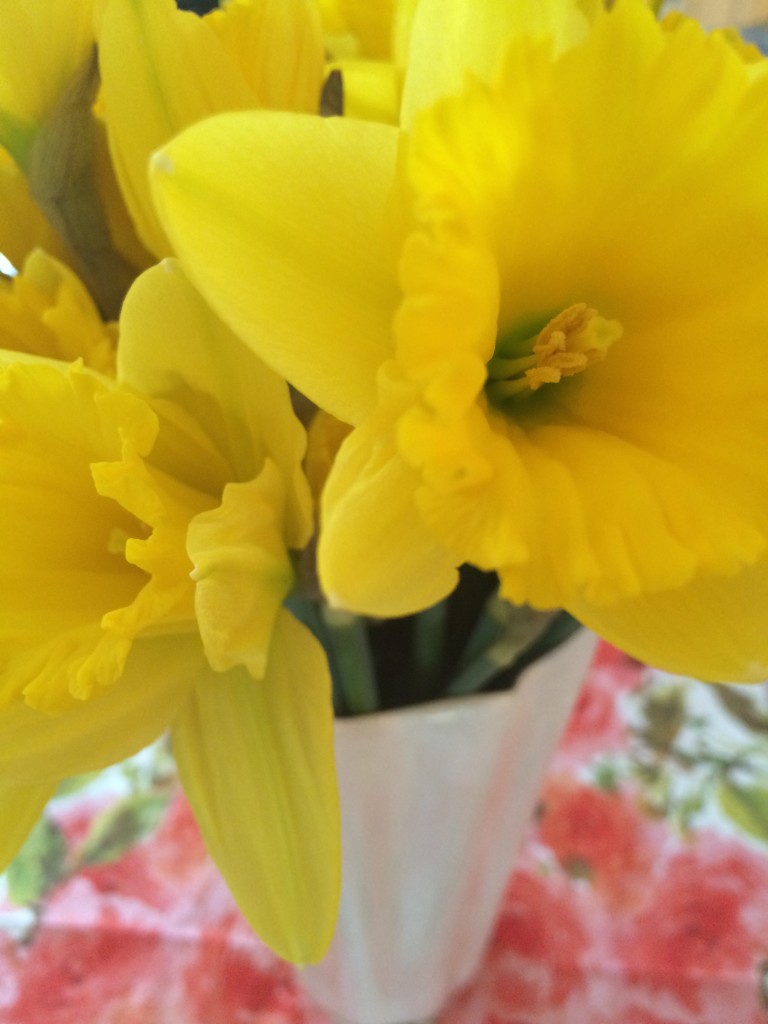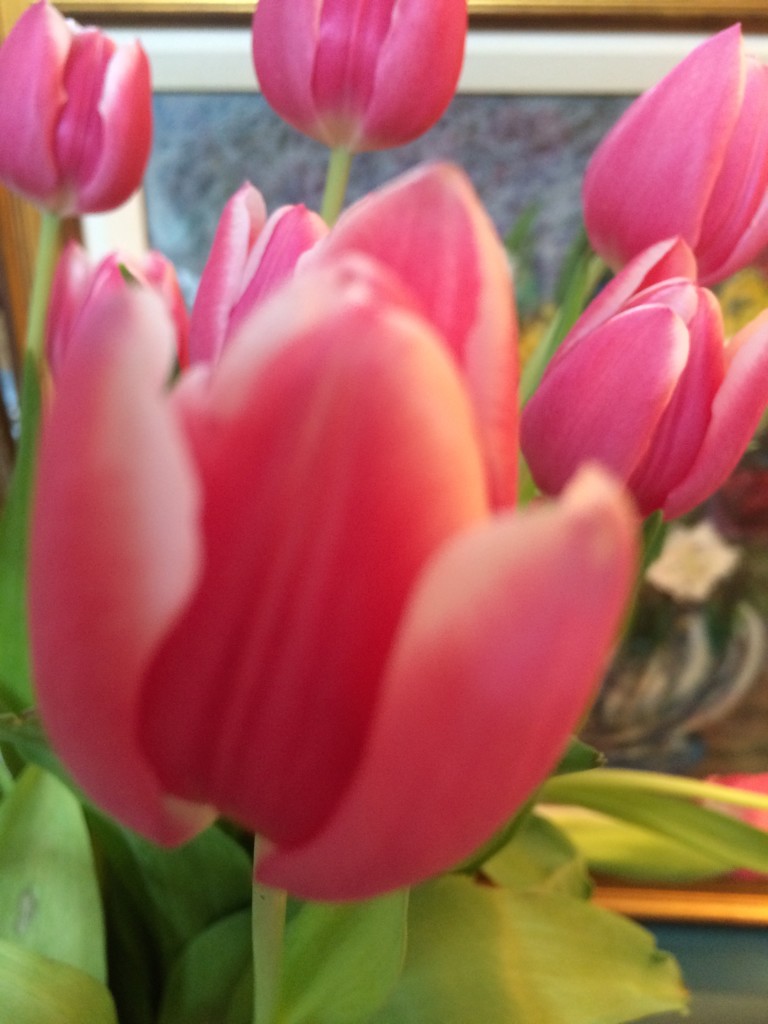Please note: this piece was also published in The Huffington Post.
 Much like any other holiday or religious observance, Easter brings with it a variety of cultural and familial traditions. Whether it be participating in a neighborhood Easter egg hunt, painting Easter eggs with your family (and deliberately sabotaging them so yours turn out better), attending a sunrise service or decorating trees with Easter eggs, it is often these small traditions that create happy and lasting memories, holding a special place in our life as we grow older.
Much like any other holiday or religious observance, Easter brings with it a variety of cultural and familial traditions. Whether it be participating in a neighborhood Easter egg hunt, painting Easter eggs with your family (and deliberately sabotaging them so yours turn out better), attending a sunrise service or decorating trees with Easter eggs, it is often these small traditions that create happy and lasting memories, holding a special place in our life as we grow older.
Yet, while we tend to welcome and value such traditions, the word “tradition”* or “traditional” – removed from a seasonal or celebratory context – tends not to be the most lauded term, particularly in a world that continues to “progress” at an unprecedented speed, with an abundant number of changes, upgrades and “improvements” impressed upon us daily.
It seems only natural, then, for questions to arise as to the point of or value of tradition:
- What does “tradition” have to offer us if, by its very definition – “a way of thinking, behaving, or doing something that has been used by the people in a particular group, family, society, etc., for a long time” – it is rooted in the past?
- Why value tradition or “old ways of thinking” or “doing” when we have learned how to do things in a new – maybe even “better” – way?
- How can we grow, advance or develop as a society and culture when we continue to follow “traditional” ways?
These are certainly important questions – and those in which I was inspired to think about after re-reading a book about moral wisdom** that I had read several years ago in college. Referring to the Catholic tradition of moral wisdom, author James F. Keenan, S.J., writes:
“Our tradition is a lively, life-giving one, even though some use the term tradition to halt reflection, discussion, education, insight, wisdom, development, or growth.”
He continues:
“In its richer meaning, however, tradition is always progressive, developing, and constantly calling us to receive it, enrich it, and humanize it.”
Surely one might find the synonymous use of the terms “tradition” and “progressive” in the same sentence a bit odd – almost counterintuitive. After all, the progressive movement can largely be understood as the antithesis of tradition – challenging traditional ways of behaving, thinking or doing and labeling them as “outdated”, “irrelevant” or “unimportant.”
But, should it be? Does it have to be? Why is tradition important?
I think there is a real beauty to be found in tradition – a beauty that may not propel us forward in the sense of quantifiable “progress” or change, but that does propel us forward as human beings in life wisdom, understanding and even emotional intellect.
Indeed, aside from the more obvious – albeit equally important – function of tradition as a way to pass on the values, morals, customs and culture of one generation to the next, tradition also teaches us something about life, where we came from and who we are as people.
By pausing to consider traditional methods of behavior or thinking, and engaging in traditional activities, we are forced to look beyond the “self” and our own “world” to the world of others, to that which we came from, reminding us of our vulnerability, immortality – and, ultimately, our connection to something larger than ourselves.
To so readily dismiss tradition because it is in the “past” or no longer applies or is “flawed” in one way or another is to discount the wisdom, insight and perspective that it can offer, which, subsequently, can help shape us into more wholesome and compassionate human beings.
Things change. Improvements are made. The world evolves. But, the essence of who we are as humans – our struggles, our fears, our needs and desires – has largely remained the same due to the inherent characteristics that define human nature. Tradition, then, seems to be a subtle reminder of this, heightening our awareness of self and others, cultivating a sense of belonging and stability, and acting as a guiding force in our lives and society.
 It is in this sense that tradition is always developing – calling us to “receive it, enrich it, and humanize it.” As author and lecturer Ardis Whitman wrote, “We must cherish our yesterdays, but never carry them as a burden into the future. Each generation must take nourishment from the other and give knowledge to the one that comes after.”
It is in this sense that tradition is always developing – calling us to “receive it, enrich it, and humanize it.” As author and lecturer Ardis Whitman wrote, “We must cherish our yesterdays, but never carry them as a burden into the future. Each generation must take nourishment from the other and give knowledge to the one that comes after.”
And so, it is not that tradition is saying stop, or halt or “think no more.” It is not saying “do not question”, “do not grow” and “do not change.” Rather, it is saying, “remember.” Think, but remember. Question, but remember. Grow and change, but remember. Remember who we are as humans, where we came from and how we can take the knowledge, wisdom and experiences transmitted to us from generations afar to live a life more beautiful – and more meaningful.
But, you may ask, what of the changes, improvements and progress we have made? Surely they couldn’t have been made by sticking solely to traditional ways. Yes – and they certainly shouldn’t be overlooked. I’d be willing to bet, however, that somewhere deep inside, each one of us has a yearning for a sense of consistency, simplicity, stability and predictability. Is that not a natural human tendency? And is that not what tradition can offer us?
Tradition. “Without [it],” says the character Tevye in the famous story of a Russian family forced to flee their homeland, “our lives would be as shaky as…a fiddler on the roof.”
Be sure to check out some of the most interesting Easter traditions from around the world, along with some delicious Spring recipes, both “old” and new.
*The word “tradition” comes from the Latin word “traditionem” which means “handing over” or “passing on.”
**The book by James F. Keenan that was referred to is: Moral Wisdom: Lessons and Texts From the Catholic Tradition (2010).
This Easter my middle son came home from college and asked, “when do we have the ham?”
I told him,”
“there’s no ham, we’re having lamb.”
“no ham!, We always have ham”
I didn’t think so, but he insisted.
“Easter HAM, it’s even a thing, EASTER HAM.”
He was disappointed by what he thought was a break in our “tradition”
Outside the kitchen window our dull metal well pump cover is exposed, but by June 4th, my daughter’s birthday, it becomes covered with a mound of green vines and the white clematis are in full bloom. I’ve taken a photo of her standing before it on her birthday over the years and chronicled her growth against it’s summer glory. Last year, on her 13th birthday I remember she put up a fight and I had to force her to take a pose. But this spring, after our lamb dinner, she looked outside and said, “I can’t wait for the flowers to bloom on that bush for my birthday. It’s like our tradition, right?!”
Our most recent indulgence (bordering on tradition) is to watch the brain splattering series, The Walking Dead. We have binged through 4 seasons in a matter of a couple of weeks. This may seem like an empty activity with little merit, but it’s something that we look forward to. There are a lot of opportunities for discussion of the characters and their moral decision-making processes. It’s not so much the activity as it is being together, laughing and enjoying our time. We may even graduate to PBS someday.
Jenna-
Thank you for a great laugh! That’s too funny and just goes to show you that traditions really do matter! How nice that you can all enjoy a show together, too. We’ve never watched The Walking Dead, but have heard good things…you’ve intrigued us! Thanks, again, for taking the time to share. We hope you’ll consider becoming an ATG contributor, if interested!
Jennifer & Katharine